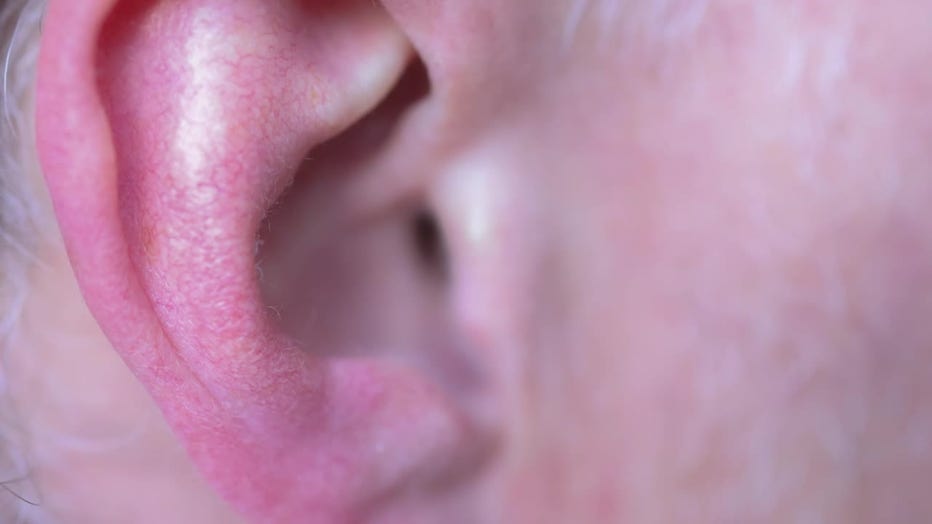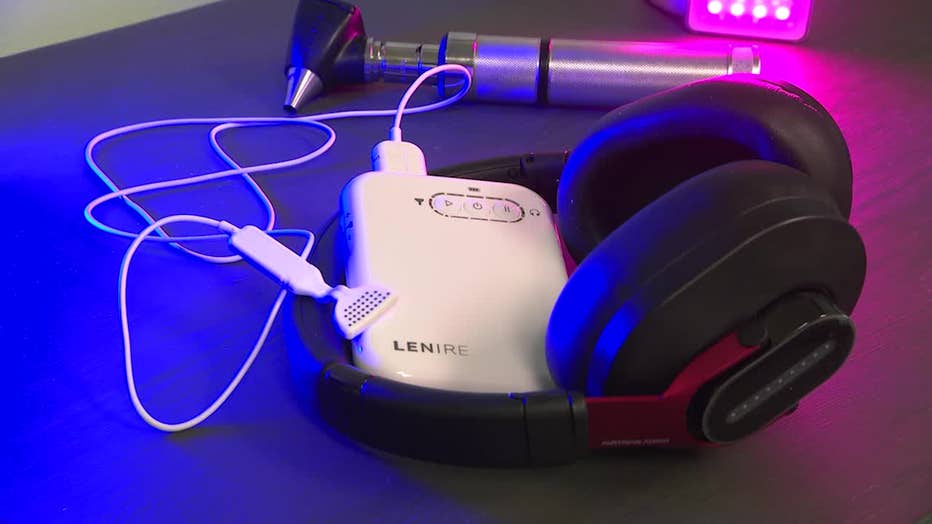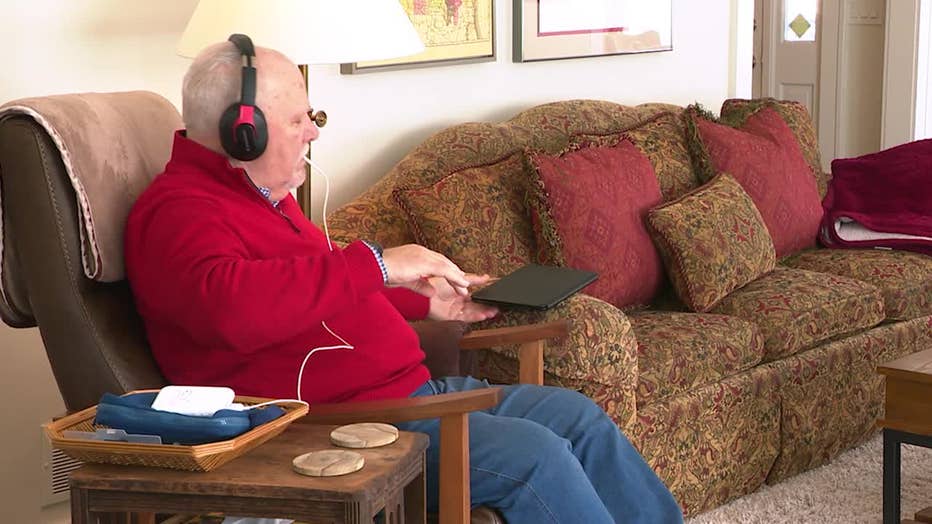Living with Tinnitus: Marietta man says new device tames 25 years of ringing in ears
What is tinnitus, can it be cured?
Tinnitus is a ringing or buzzing in the ears which will not go away. More than 25 million adults suffering through the condition are looking for relief.
MARIETTA, Ga. - Michael McCreary of Marietta starts his day early, between 5 a.m. and 6 a.m.
These days, the first thing he does is pick up his Lenire device.
"I sit down, turn it all on, put it all in, and then I sit and work on crossword puzzles," the 68-year-old says.
How did McCreary develop Tinnitus?
McCreary's issues with his ears began in 1998, when he took his two then teenage daughters to a Backstreet Boys concert at the Fox Theatre in Atlanta.
"We got there and everything was fine," McCreary remembered. "The warm-up was great. The second the band came on stage, and it was the 4,000 screaming girls. That was the problem, not the music."

(Photo submitted by family)
By the time he got home, he was in pain.
A few days later, he began hearing an audio tone 24/7.
"If you've ever taken the hearing tests, and you hear them play a tone to you and raise your hand, that's what it was like," McCreary explained.
Eventually, after about a decade, the tone morphed into a constant whooshing sound that has become the soundtrack of the real estate manager's life.
What is it like living with Tinnitus?
Audiologist Dr. Melissa Wikoff of Peachtree Hearing in Marietta says people with tinnitus experience all kinds of sounds from buzzing to static that can make it hard to function.
"Tinnitus is a sound that you perceive that no one else can hear," Wikoff said. "So, it's a sound that's not coming from the environment. It's coming from inside your body."
The condition is both audiological and neurological.

"The number one cause is usually a hearing loss," Wikoff said.
And, because the noise is constant, Wikoff said it can make it hard to function.
"Imagine there's that ringing there, and you're trying to concentrate at work, or have a conversation, and you can't escape it, it's always there," Wikoff says. "You feel like you're stuck with this the rest of your life. 'I have to hear this the rest of my life.'"
But, Wikoff says, she has found a new device that might help.
How is Tinnitus treated?
Last fall, Dr. Wikoff began fitting patients like Michael McCreary with the recently FDA-cleared Lenire Tinnitus Treatment Device.
"I have been specializing in tinnitus for the last 15 years," Wikoff told FOX 5. "This is the most powerful tool that I have in my toolbox to treat tinnitus. It's pretty incredible."
McCreary began using the device twice a day for 30 minutes at the end of October.

Lenire Tinnitus Treatment Device
"By Thanksgiving, I started noticing it getting better," he said.
"It's known as bimodal neuromodulation," Dr. Wikoff explained. "Lenire works by stimulating the tip of your tongue and then using your ears."
In clinical studies, just over 80% of the volunteers who used the Lenire device for 12 weeks saw a reduction in their tinnitus symptoms, Wykoff said.
She has fitted just over 100 patients with the device and said they are seeing similar outcomes in their patients.
McCreary said the device felt a little odd, at least at first.
"It gives you a mild little tingle, a little electrical pulse on the tip of your tongue," he said.
By stimulating two nerves at once, Wikoff explained, the device is "re-coding" the brain, damping down the symptoms of tinnitus.
"So, using these two senses at the same time is really making the difference, and that's what's getting in the brain," she said.
McCreary said it took about a month to begin to notice a difference, and Wikoff warned him his symptoms might temporarily worsen before they improved.
But, soon, he told FOX 5, he was seeing progress.
"What I noticed is that I wasn't having to work to concentrate," McCreary said. "I wasn't having to, you know, reprogram my head away from the tone to be able to pay attention to something else."
McCreary paid about $4,500 for the device and followups.

Michael McCreary of Marietta said his Lenire Tinnitus Treatment Device has been a gamechanger.
The tone is still there, he says, but it no longer dominates his life the way it had before.
"It doesn't wake me up, doesn't keep me from going back to sleep," he says. "I'm able to concentrate at work. I'm able to sit at the computer."
After more than 25 years of searching for a way to turn down the noise, Michael McCreary said he felt hopeful this may be it.
"I keep using it and, and continue to see progress with it," McCreary smiled. "That's my goal."
Wikoff said the average cost for the device is $4,000 to $5,000.
"Right now, there's no insurance coverage that's guaranteed for the Lenire," she said. "We have a letter that we're writing for some of our patients, and a growing number of our patients have successfully gotten either a little bit or some reimbursement. But, it just very much depends on your plan."
Where can I get a Lenire Tinnitus Treatment Device in Georgia?
Peachtree Hearing is the only licensed Lenire provider in Georgia, and they have a waiting list of about four weeks for an assessment.
For more information, visit www.peachtreehearing.com or call 470-485-4327.
If you are outside Georgia, the company says there are over 70 Lenire providers nationwide.
You can join the company's assessment waiting list for a provider.

